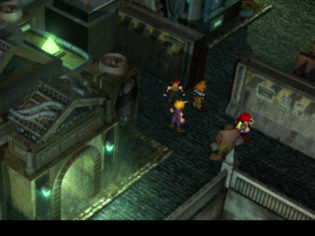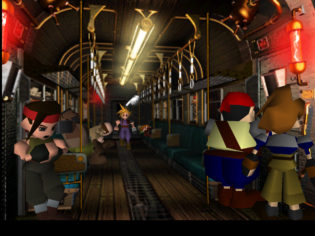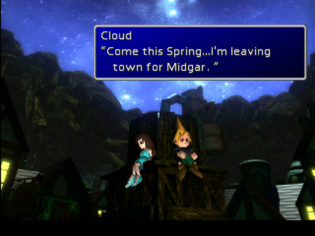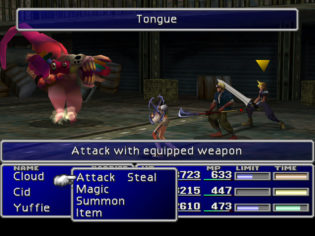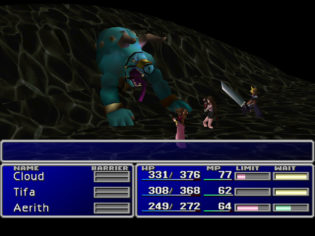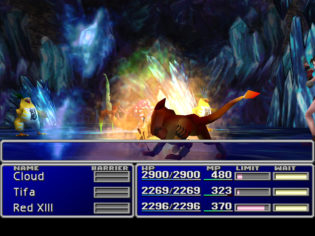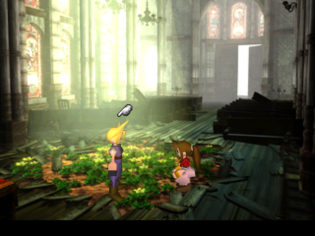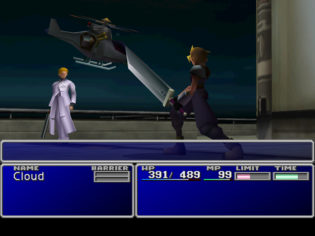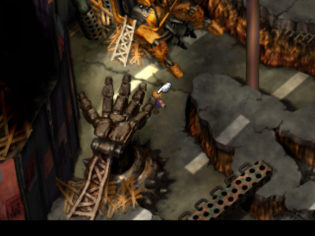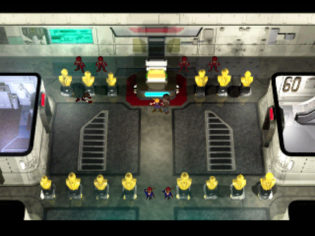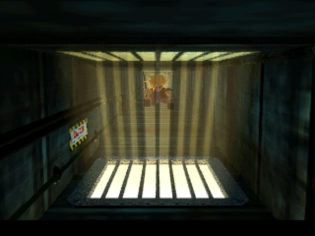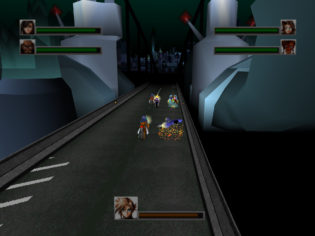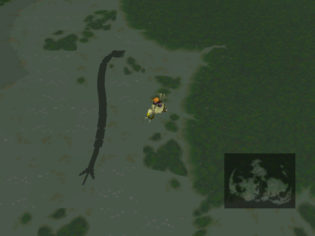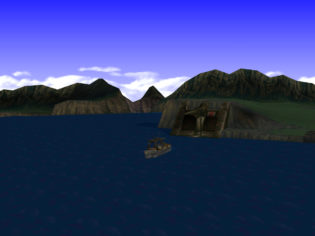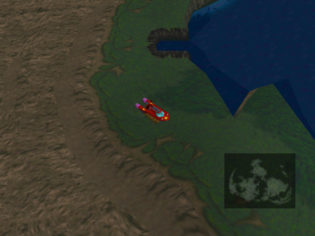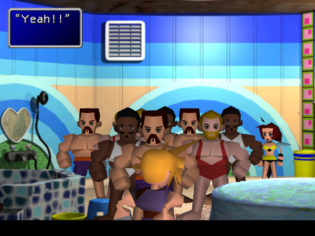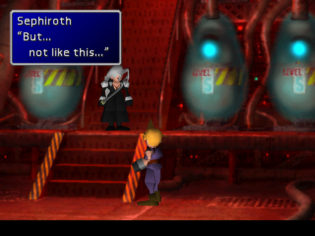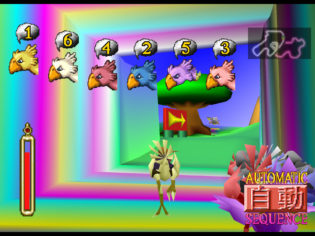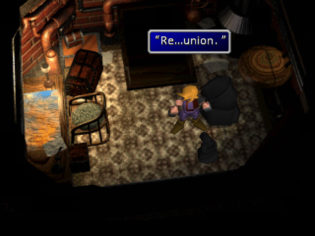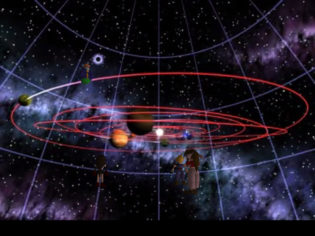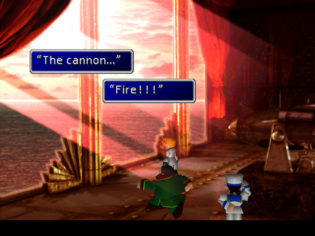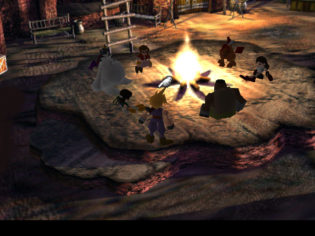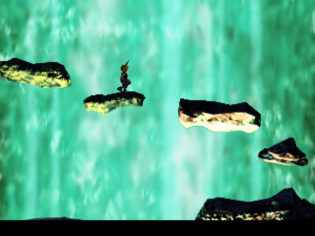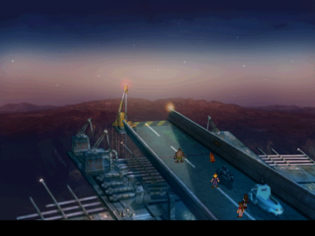O tempora is a series of retrospective posts where I play games from ages before to see if they stood the test of time.
After revisiting the first 6 entries in the franchise due to fantastic Pixel Remaster re-releases, I decided that it was finally time to revisit the PlayStation 1 era of Final Fantasy. Starting with the game that is incredibly influential and possibly still most famous and successful entry in the series – Final Fantasy VII.
Thing about FFVII is that while it has been my introduction to the series, as it had been to many, it was still years after it originally launched and after the experience with other jRPGs. And my original copy of the game was used with a highly scratched disc, so I had to postpone the completion of the game several times because my PS1 would occasionally stop reading the disc correctly and freezing during scene changes. It wasn’t the best possible experience and for a long time I thought it was the main reason why I didn’t care about this title as much as many others do. But upon revisiting it again, I have to say that FFVII is just not quite my thing, even if I got to like it far more this time. I can’t say the experience with the current PC version is pleasant, however.
If you’re following the series chronology, especially when playing them all for the first time, you will find FFVII both the same and at the same time very different compared to the 16-bit era of the franchise. On one hand, the main mechanics are all the same – the battles are still “turn-based” (Active Time Battle isn’t strictly turn based), random encounters with enemies that are not visible on screen are still here, basic concepts with attacks, magic, summons and abilities is very familiar, as are the items and equipment. Even the archetypes for the characters are somewhat reminiscent of the already classic FF jobs/classes. And although it takes a while to get there, there is a distinction between the locations and the overworld map where you move between the towns, dungeons and the like with several types of transportation that you unlock as the game goes along.
One notable basic concept changed – the active party now consists of 3 people instead of 4. And unlike 5 from FFIV this idea did stick and reappears in many following games in the franchise. One huge reason for why this change feels fine is the biggest gameplay update to FFVII – materia system. The idea here is a mix of job progression in FFV and the magicites from FFVI, where each “materia” can be slotted into your weapon or armor (oh and the game now only has weapon, armor and accessory to wear, nothing else) and by themselves they (usually) immediately unlock an ability for you to use in battles – be it a spell, a summon, a command ability, some unique thing or a modifier to another materia if you link it in a special way. These materias also gain their own type of experience and can level up, but you can swap them around characters at any point you have access to the menu, meaning that any character can have any combination of abilities, making your party of three incredibly versatile no matter what you do.
It’s a really cool idea with games influenced by it still popping up here and there (Path of Exile as a more recent example). And if you love the combat aspect of jRPGs you’re gonna love it. I don’t, but still found the idea of materia to be super fun, even if it does mean that there’s less gameplay differentiation between characters than before. And it’s a bit more time consuming and micro-management filled idea than jobs or magicite (or even more streamlined concept from later FF IX). Not that there are no other gameplay differences between characters, as they get their own Limit Breaks – another highly influential idea of super moves that characters can do when pushed to their limits (somewhat reminiscent to often not noticed Desperation Attacks from FFVI). And in addition to that, the weapons they get, especially the nuanced ultimate weapons of the final parts of the game, can influence who you pick.
For the most part, though, your party will be driven either by the story or the story preferences you have. And what this game is possibly best known for is the story. Square went for a highly cinematic take on storytelling with their first 3D Final Fantasy and it helps that the world and themes of VII are distinct from anything that the series has done before. And when the game is set on rails, just focusing on telling the story it’s amazing. The characters shine, the story develops in interesting ways and is presented in a really cool way. There are genuinely surprising twists and some of the plot points that the game does still feel fresh, despite being a rather typical example of a trope, just because of the way it’s told. I think, that’s one of the main reasons people so fondly remember the opening hours before you leave Midgar – the part that has been greatly expanded in the Remake.
When you enter the rest of the world, however, and things start slowly falling apart. The world in FFVII feels really empty and almost pointless. Couple of towns that are completely optional are forgettable apart from other story events that just happen to be told there. And even the main locations you get to explore sometimes feel almost like an afterthought, unless they are a huge location where important linear story events happen. Despite being a huge proponent for overworld maps otherwise, as they provide scale to the events, in FFVII the map exploration feels detrimental. As are countless tedious mini-games that the game is full of for no reason other than the fact that clearly Square had a bunch of ideas at the time and wanted to try all of them. You can see how this experience shaped later Parasite Eve, where it’s all about the cinematic story-driven jRPG experience, and FFX, where the journey is linear and fits the world and the story so much better.
Sadly, the story also drops way too often due to the game structure. You’d have amazing sequences followed by extended periods of nothing interesting happening, followed by another set of really cool main plot events at a very uneven pace. Additionally, after lots of cool introductions, most of the characters barely get explored and some just remain unlikable from start to finish, not ever getting a chance to be anything but an annoyance. A huge amount of this has been expanded a lot by the whole “Compilation of Final Fantasy VII” concept and is now being slightly re-imagined with the Remake continuity, where everyone and everything is far more interesting, where in the original there isn’t even a hint of that in some optional scene or a line of dialogue. The game’s main story points are still fantastic and memorable, even though some of the moments and dialogue haven’t aged well. But there’s too much extra around it that detracts from the experience.
As does the modern PC port (and other modern versions of the original), which are just… not great. Current versions all suffer from lots of issues, some of which can be fixed or modded on PC, all stemming either from the design of the game, the bugs that existed since 1997 and were never fixed or just the fact that the current port is still based on the original PC port from 98. And PC ports in that time were not fantastic, let’s put it this way. Some of the biggest issues of that version were fixed by now (like the midi soundtrack), but it’s still full of minor visual or quality of life issues that will bug you. Thus, it is unfortunate that no Pixel Remaster-style remake of the game exists, as the Remake games are not the same game (and we’ll see where they go by the end). It would be great to see the game as it was here, but updated, with modern QoL features and rebalancing of some aspects, like the whole optional content stuff with chocobos and superbosses that are just terrible.
I’m glad that I’ve revisited Final Fantasy VII and if we ever do get some sort of a Pixel Remaster remake of it, I might be curious about revisiting it… But I doubt it. Despite having a lot of really cool things and still being a cool experience when it comes to the main story, I don’t find it to be an enjoyable play. The kind that is rooted in the overall game pace design and cannot be fixed by mods and ability to skip incredibly long animations or speeding up battles. I’m glad the game influenced a lot of other titles and that possibly because of it Parasite Eve exists as it does. Though… I’m not glad FF XIII exists… Either way, if you’ve never played VII before – definitely give it a go. It has a lot of great elements to it, but you most likely find it far less enjoyable than the image it has created over the years.


